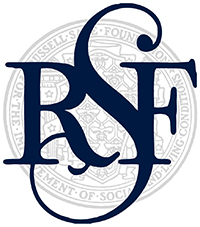Main navigation

The Russell Sage Foundation recently approved twenty research grants in its programs on Behavioral Science and Decision Making in Context; Future of Work; Race, Ethnicity, and Immigration; and Social, Political, and Economic Inequality and in its special initiatives Immigration and Immigrant Integration and Implications of the 2023 Supreme Court Decision to Ban Race-Conscious Admissions at Colleges and Universities for Educational Attainment and Economic Mobility. Two grants were co-funded with the Spencer Foundation, one grant was co-funded with the Carnegie Corporation of New York, and one grant was co-funded with the Hewlett Foundation.
These research projects include studies on the impact of intellectual humility on political polarization; how flexible work arrangements affect gender inequality at home and at work; the long-term impacts of minimum wage increases; how the Students for Fair Admissions case has impacted incoming class diversity and undergraduate admissions policies; the effects of exclusion policies on Chinese immigration and choices by Chinese immigrants in the U.S.; the decision-making processes of students who start but do not finish their college degree; the role of decision-making challenges, such as limited self-control, on wealth inequality; and the effects of a home meal program on student outcomes.
Following is a list of the recent grants. Please click on each for a brief description of the research project.
Behavioral Science and Decision Making in Context
AJ Alvero (Cornell University), Ryan Sakoda (University of Iowa), Kristen Bell (University of Oregon), and Jake Searcy (University of Oregon) will examine the decision-making process during parole proceedings in California.
David Kirk (University of Pennsylvania) will investigate whether police officers exposed to use of force by fellow officers are more likely to use force after exposure.
Spike W. S. Lee (University of Toronto) and Matthew Feinberg (University of Toronto) will test the impact of intellectual humility—recognizing that one’s beliefs may be incorrect and being open to new information and perspectives—on political polarization.
Future of Work
Laura Adler (Yale University) and Emma Zang (Yale University) will examine how flexible work arrangements affect gender inequality at home and at work.
Sari Kerr (Wellesley College) and William Kerr (Harvard University) will investigate the long-term impacts of minimum wage increases.
Hani Mansour (University of Colorado, Denver), Andrea Velasquez (University of Colorado, Denver), and Pamela Medina Quispe (University of Toronto, Scarborough) will explore the intergenerational household impacts of Chinese import disruptions in the early 2000s.
Till von Wachter (University of California, Los Angeles) will examine the effects of AI on the employment and earnings of AI and STEM workers in California over the past 20 years.
Trevor Young-Hyman (University of Pittsburgh) will study the effects of employee ownership on worker and firm outcomes.
Immigration and Immigrant Integration
Stephanie Canizales (University of California, Berkeley) will examine how the relationship between unaccompanied migrant youth and their sponsors affects youth integration - This grant co-funded with the Carnegie Corporation of New York.
Implications of the 2023 Supreme Court Decision to Ban Race-Conscious Admissions at Colleges and Universities for Educational Attainment and Economic Mobility
Steven Dandaneau (Colorado State University, Fort Collins) and Bryan Cook (Urban Institute) will explore how the Students for Fair Admissions case has impacted incoming class diversity and undergraduate admissions policies - This grant is co-funded with the Spencer Foundation.
Byungkyu Lee (New York University), Maria Abascal (New York University), and Tiffany J. Huang (Ohio State University) will investigate how colleges and universities communicate their commitment to diversity to prospective students and faculty in the wake of the 2023 Students for Fair Admissions decisions - This grant is co-funded with the Spencer Foundation and the Hewlett Foundation.
Race, Ethnicity, and Immigration
Emma Adam (Northwestern University) and Adriana Umaña-Taylor (Harvard University) will evaluate how a universally targeted ethnic-racial identity intervention impacts academic, psychological, and social outcomes for first-year high school students.
Hannah Postel (Duke University) will examine the effects of exclusion policies on Chinese immigration and choices by Chinese immigrants in the U.S.
Social, Political, and Economic Inequality
Leah Brooks (George Washington University), Lu Han (University of Wisconsin, Madison), and Bryan Stuart (Federal Reserve Bank of Philadelphia) will investigate the extent to which the benefits of condominium ownership outweigh the costs for low-income residents.
Christina Ciocca Eller (Harvard University) will examine the decision-making processes of students who start but do not finish their college degree.
Stefano DellaVigna (University of California, Berkeley) will explore the role of decision-making challenges, such as limited self-control, on wealth inequality.
Megan Iantosca (State University of New York, Buffalo), Shelley Kimelberg (State University of New York, Buffalo), and Kristen Schultz Lee (State University of New York, Buffalo) will examine how young adults navigated the challenges of school and work during the COVID-19 pandemic and how their experiences impacted their understandings of career paths and social mobility.
Brittany Martin (University of Rhode Island) will investigate the effects of recent legal financial obligations policy reform in Rhode Island, which aims to alleviate court-related debt, on the reintegration of formerly incarcerated people.
Rebecca Ryan (Georgetown University), Pamela Herd (University of Michigan), Ariel Kalil (University of Chicago), Carolyn Barnes (University of Chicago), Anna Gassman-Pines (Duke University), and Elizabeth Linos (Harvard University) will explore the effects of a home meal program on student outcomes.
Kevin Young (University of Massachusetts, Amherst) will examine how the population of the economic elite has changed over the last 20 years, the pathways individuals take into elite status, and the extent to which different pathways to elite status relate to patterns of donations, sponsorships, and philanthropic affiliations.





